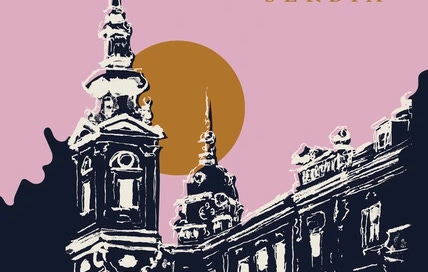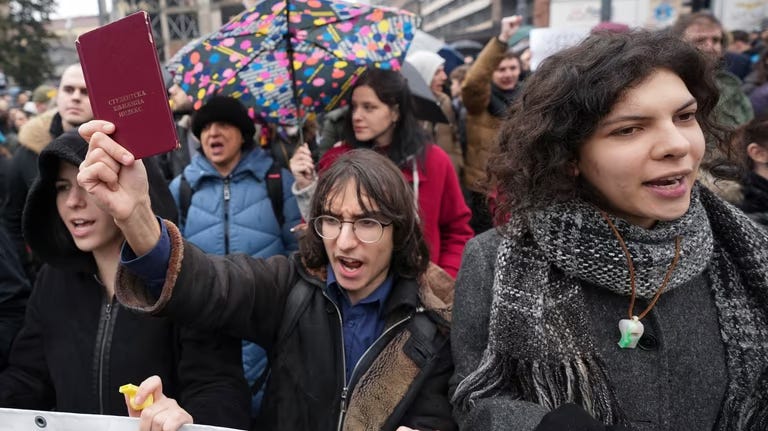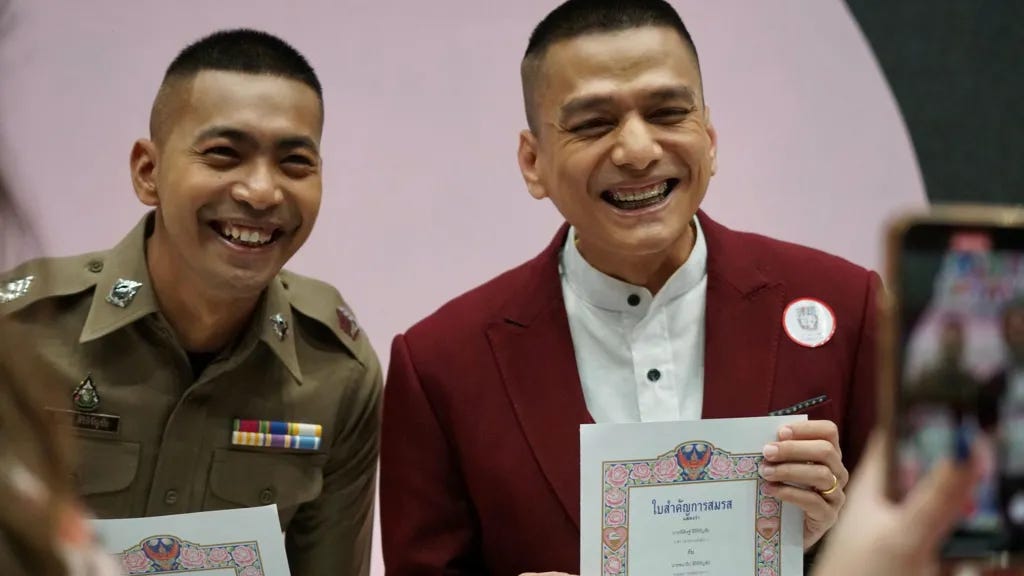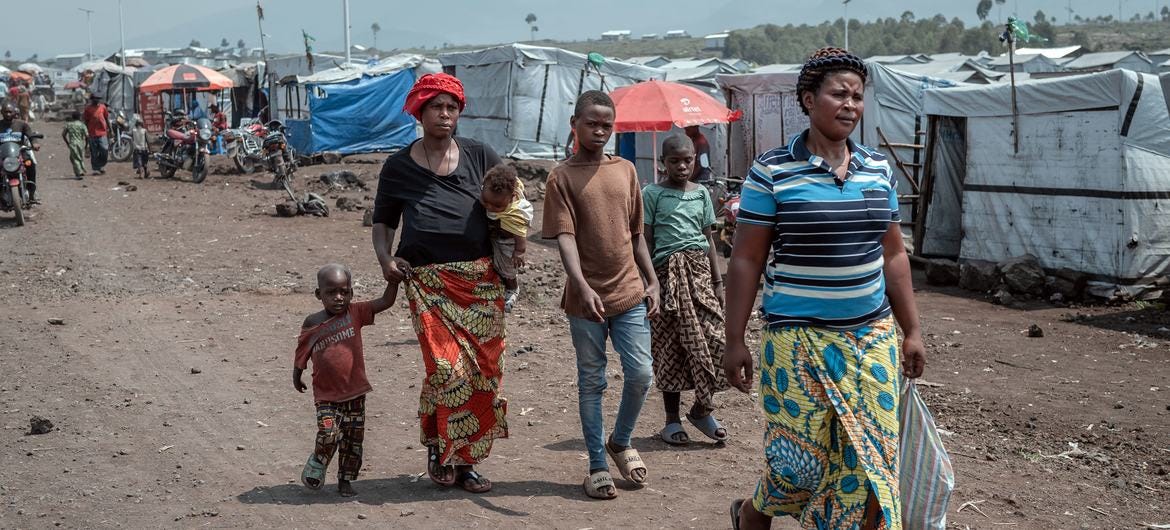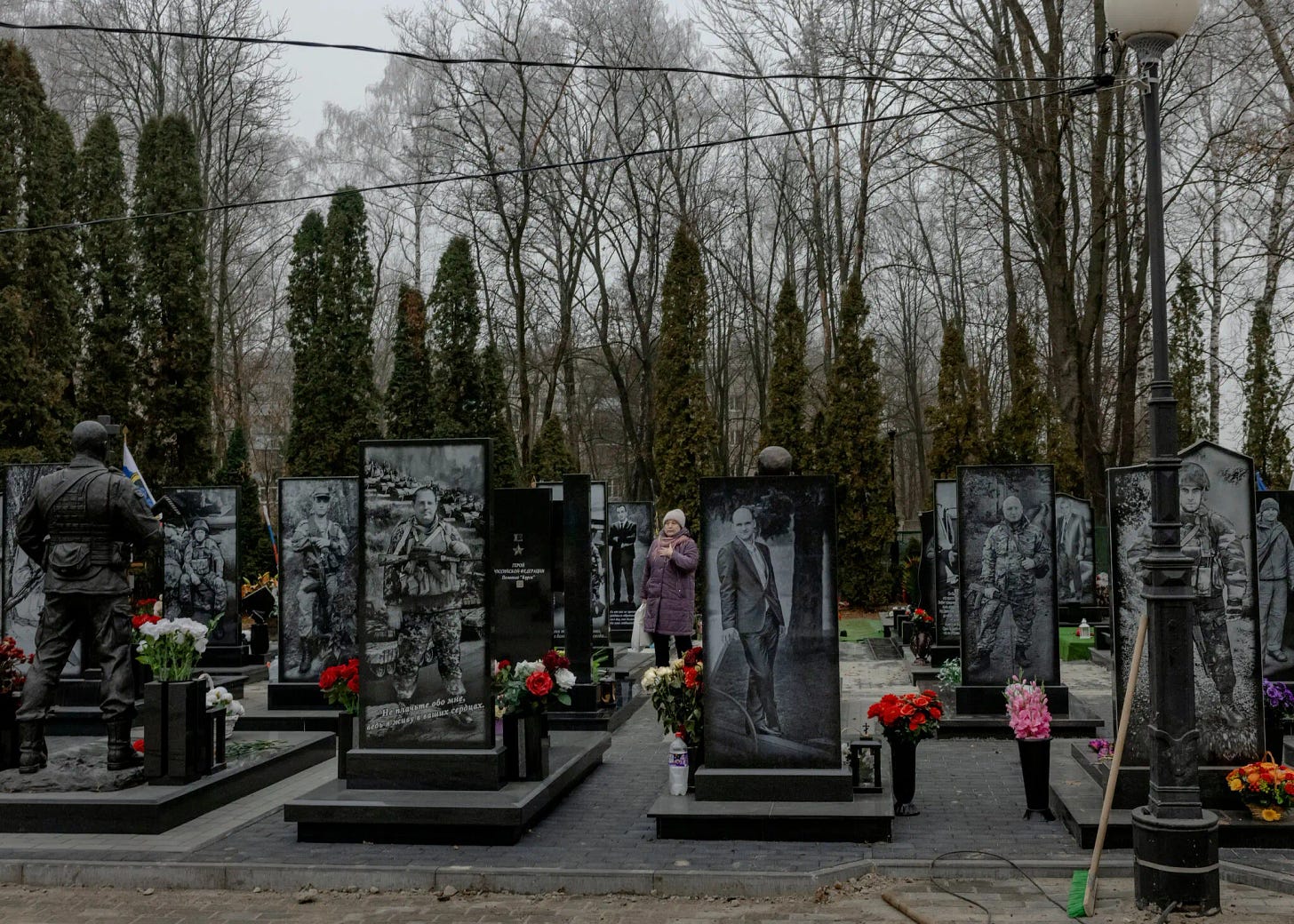What You Missed: January 26, 2025
This Week: Serbia, Thailand, The Democratic Republic of the Congo, Ukraine, and Australia
Key Themes: Political Leadership, Governance, Activism, Globalization, Humanitarian Crises, and Cultural Transformation
1️⃣ ‘A driver rams an anti-government rally in Serbia’s capital and injures one protester’ - https://apnews.com/article/serbia-protests-vucic-belgrade-strike-jagodina-91718d6702f44488fe52a7231ddcaa88
Serbia continues to grapple with internal divisions as anti-government protests clash with pro-government supporters, culminating in a woman driving her truck into a protesting crowd. The nation has faced months of unrest following the November 1 collapse of the Novi Sad train station, which killed 15 civilians and injured two others. This tragedy intensified public concerns about government corruption and mismanagement of funds, eventually leading to the January 24 declaration of a general strike and nationwide protests spearheaded by university students.
Thousands of protesters filled the streets of the Serbian capital, Belgrade, on the same day President Aleksandar Vučić held a rally in the coalition stronghold of Jagodina. Vučić claimed Serbia is under threat from insidious actors both domestically and internationally. His administration, known for its close collaboration with Russia and China, has positioned Serbia as an anti-Western stronghold in Europe. During the rally, Vučić stated that foreign opposition to his openness toward trade with the Kremlin and Beijing “is what they want to crush.”
While attending the World Economic Forum in Davos, Switzerland, Vučić accused “foreign agents from several Western countries” of undermining Serbia, asserting that “we know this for a fact.” Despite attempts to reconcile with protesters, tens of thousands continue to demonstrate nationwide, as student leaders have rejected all negotiations thus far. Protesters have disrupted traffic and drawn significant police intervention. A 24-year-old driver was arrested after plowing into a crowd of demonstrators—a grim echo of a similar car-ramming incident on January 16 targeting other student protests.
Vučić, who has ruled Serbia for over a decade since his election in April 2014, is facing growing discontent and mistrust from the general population. He has been accused of corruption and deliberate erosion of democratic processes. University students are now at the forefront of calls for reform, urging the nation to take action. For two months, universities, schools, NGOs, companies, stores, restaurants, and small businesses have closed their doors in solidarity. The general strike has also drawn participation from media outlets, cultural institutions, state service unions, city governments, doctors, lawyers, farmers, and opposition party members.
Protest marches have spread to cities including Belgrade, Novi Sad, Niš, and even Jagodina ahead of Vučić’s speech. Although 13 individuals have been charged in connection with the train station collapse, many of the accused have already been released, fueling further speculation about systemic corruption.
Serbia’s ongoing EU accession discussions, now in their 11th year, are under strain due to persistent concerns about democratic governance and the country’s foreign policy alignment. Brussels has expressed unease over recent treatment of protesters and emphasized the importance of safeguarding freedom of assembly for Serbian citizens. EU officials have also reiterated that Serbia’s accession hinges on its normalization of the rule of law and improved relations with Kosovo.
As calls for further strikes echo across Serbia, the protests show no signs of abating. Therefore, will these demonstrations compel Vučić to compromise? Or will they push him toward more extreme measures to suppress dissent?
2️⃣ ‘The long road to legalise same sex marriage in Thailand’ - https://www.bbc.com/news/articles/cge7g93xjw9o
Thailand, on Thursday, made history by legalizing gay marriage, codifying a long-awaited law that applies to all Thai citizens. Clause 1448 of the Thai Civil Code, which defines marriage, has been amended to include same-sex relationships—a landmark moment celebrated by LGBTQ+ activists across the country.
Police officer Pisit "Kew" Sirihirunchai and his partner, Chanatip "Jane" Sirihirunchai, were among the first to marry under the new law. Their wedding, held inside a Bangkok shopping mall, was organized by city and government officials. Until now, the couple had been forced to register as brothers to be legally recognized as a family under Thai law. With the new ability to obtain a marriage certificate, same-sex couples in Thailand can now access marital rights such as adoption, asset management, and inheritance. This represents a significant step forward for LGBTQ+ rights in Asia, where such legal recognition is rare. Thailand joins Nepal and Taiwan as one of only three Asian nations with marriage equality, following the endorsement of the Thai King and overwhelming approval in both houses of Parliament in June 2024.
The celebration at the Bangkok mall was filled with joy and reflection. Among the onlookers was Mr. Zhang, a gay man from China, who expressed admiration for Thailand’s progress while criticizing his own country’s lack of similar reforms. While Thailand has long been recognized as a bastion of tolerance for LGBTQ+ people, the journey toward legal equality has been challenging.
The modern fight for marriage equality in Thailand began gaining momentum in 2013, when LGBTQ+ activists staged large-scale protests. Their efforts were met with significant resistance, including derogatory portrayals in Thai media. Progress stalled further after a 2014 military coup, which deposed the sitting government. Despite these setbacks, the Thai people remained resolute in their pursuit of equal rights, and societal attitudes shifted. As same-sex marriage became increasingly normalized in Western nations, Thailand's movement for equality gained traction.
The 2024 vote in Parliament was a resounding victory, passing 400 to 10—an overwhelming demonstration of the movement’s popularity. Clause 1448 has now been rewritten using gender-neutral language, replacing terms like “man” and “woman” with inclusive terminology. While this amendment is a monumental achievement, other areas of Thai law remain points of contention for LGBTQ+ activists.
The passage of the law has brought immense happiness, safety, and clarity to Thailand’s gay community. For many, January 23, 2024, will be remembered as a day of liberation. However, the fight for full equality continues, as advocates push for additional legal reforms to address lingering disparities.
With much of Asia still lagging behind in LGBTQ+ rights, which Asian nation is best positioned to follow Thailand’s example and take the next step toward equality?
3️⃣ ‘DR Congo emergency: Fears that regional capital Goma faces attack’ - https://news.un.org/en/story/2025/01/1159401
The Democratic Republic of the Congo (DRC) is experiencing escalating hostilities in its eastern regions, as the armed group M23 continues to cause widespread displacement. The resource-rich territories of North and South Kivu have become strategic targets for M23, whose activities have displaced hundreds of thousands of people. According to the United Nations High Commissioner for Refugees (UNHCR), sexual violence remains a horrific and pervasive element of the conflict. M23 fighters and other armed groups have been reported to abduct, rape, and often murder women and girls.
In June 2024, the UN peacekeeping mission MONUSCO withdrew from South Kivu to focus on North Kivu, home to key cities such as Goma and Sake. Goma, the capital of North Kivu, is now under imminent threat from M23 forces. The region has become a flashpoint for conflict, with repeated clashes involving the UN peacekeeping force, the Congolese Armed Forces (FARDC), M23, and other groups. Over 400,000 people were forcibly displaced from North and South Kivu in 2024 alone, and these numbers are expected to rise rapidly.
The humanitarian crisis has reached a critical stage, with January 21 witnessing shelling and bombardment of camps for displaced people. UNHCR staff remain in the region, providing assistance where possible, but the deteriorating security situation poses significant challenges. The spokesperson for the UN Secretary-General on the DRC recently accused Rwanda of backing M23, a claim that the Rwandan government has denied. Rwanda, in turn, warned that the ongoing offensive risks sparking a regional conflict. The Secretary-General’s office has called on all UN member states with influence in the region to assist in de-escalating the crisis.
UNHCR spokesperson Matthew Saltmarsh has highlighted the dire conditions and limited options available to humanitarian organizations in the eastern DRC, where access is severely restricted. Reports of human rights violations—including looting, injuries, murders, and kidnappings—are on the rise among the over 4.6 million displaced individuals in North and South Kivu.
As of January 26, M23 rebels are closing in on Goma, heightening fears of an all-out assault. With tensions mounting and the humanitarian situation worsening, what is the UN’s most effective route to de-escalate the conflict while ensuring the safety and protection of DRC residents?
4️⃣ ‘Ukraine Is Losing Fewer Soldiers Than Russia — but It’s Still Losing the War’ - https://www.nytimes.com/2025/01/23/world/europe/ukraine-russia-soldiers-loss.html
Ukraine has shown remarkable resilience against overwhelming odds in its ongoing war with Russia, however despite achieving significant tactical victories, the human cost remains staggering. The Russia-Ukraine war is the largest conflict fought on European soil since World War II, marked by massive attrition on both sides. Determining exact casualty counts has proven difficult due to biased reporting and unverifiable sources. However, experts estimate that Ukraine has suffered roughly half the troop losses of Russia in terms of battlefield deaths and injuries. Despite this ratio, Russia’s larger population and ability to rapidly replace troops present a severe challenge for Ukraine.
Ukraine’s growing manpower dilemma is evidenced by proposed changes to draft-age requirements and conscription laws. Independent tracking platforms such as Lostarmour.info and UALosses.org attempt to estimate Ukrainian casualties by analyzing obituaries, funeral notices, and other public records. Both sites claim to have verified approximately 62,000 Ukrainian soldier deaths. Lostarmour, a volunteer-run project primarily operated by Russians, estimates over 100,000 Ukrainian deaths and positions itself as countering "Ukrainian propaganda." Meanwhile, UALosses, managed by an anonymous individual reportedly residing in a Western nation, maintains no declared ties to either side. While both platforms have been corroborated by various independent sources, neither is officially recognized by any government, and their reliability remains disputed.
The lack of transparency extends to Western intelligence agencies, which have withheld detailed casualty data to avoid undermining Ukraine, a key ally. Ukrainian President Volodymyr Zelenskyy has publicly claimed 43,000 military deaths, a figure far below Western estimates. In contrast, U.S. officials informed the New York Times in August 2023 that over 70,000 Ukrainian soldiers had likely been killed—a figure that excludes the additional casualties incurred in the following year and a half. The issue of missing soldiers further complicates casualty statistics. As of December 2024, nearly 60,000 Ukrainians were listed as missing, with more than half believed to be soldiers.
While Ukraine has reportedly incapacitated two Russian troops for every one Ukrainian, its military forces are depleting at an alarming rate relative to its population size. The numerical disparity is stark: Russia fields at least 400,000 troops on the front lines compared to Ukraine's 250,000. Russia’s population is more than four times larger than Ukraine’s, enabling it to draw on a larger pool of conscripts, mercenaries, and even convicted felons. The conflict has also seen outside support for Russia, with North Korean troops reportedly joining the fight as of November 2024.
Despite these advantages, Russia faces mounting economic pressures. The cost of basic goods continues to rise, and the nation’s long-term economic stability is increasingly in question. Meanwhile, Donald Trump's return to the U.S. presidency has, surprisingly, offered greater support to Ukraine than many initially expected.
Will it continue as a war of attrition, leaving both sides with devastating population losses? Could other nations become more directly involved, either through economic or military means? And ultimately, who stands to gain the most from prolonging the war—or from bringing it to an end?
5️⃣ ‘An angry culture war surrounds Australia Day’ - https://www.economist.com/asia/2025/01/23/an-angry-culture-war-surrounds-australia-day
Australia finds itself at a cultural crossroads as debates over the meaning of Australia Day intensify, fueling a broader culture war. January 26 marks the anniversary of the arrival of British colonists at Sydney Cove in 1788, an event many Australians celebrate as the founding of a prosperous nation that has achieved remarkable success economically, culturally, and socially. However, for Indigenous Australians, the day represents the beginning of colonization, dispossession, and systemic oppression. To many, it is known as "Invasion Day," a painful reminder of historical injustices.
In recent years, protests and calls to rename or shift the date of Australia Day have gained momentum. Companies and local governments have responded by allowing employees to observe the holiday on alternate dates in solidarity with Indigenous communities. Meanwhile, debates about the holiday’s significance have become a flashpoint in Australia’s political landscape.
Conservative critics argue that these efforts attack Australian traditions, framing the push for change as a leftist attempt to undermine national pride. Peter Dutton, leader of the opposition Liberal Party, has seized on this narrative in his campaign rhetoric, decrying "wokeness" and presenting himself as a defender of Australia’s cultural heritage.
While culture wars have historically been less effective in Australia than in other democracies—partly due to compulsory voting, which tends to favor moderate positions—Dutton’s strategy may reflect broader global trends. The political winds of 2024 have seen rightward shifts in several elections worldwide, often characterized by opposition to incumbent governments and a backlash against progressive movements.
As Australia approaches its next federal election, the future of Australia Day—and its place in the nation’s identity—may serve as a litmus test for the country’s political and cultural trajectory.
Can Australia Day become a potent enough symbol to rally conservative voters? Will he adopt Trumpian tones in his rhetoric and policy, following the populist playbook of culture war politics? And if so, will this strategy resonate with Australia’s electorate, or alienate the moderate voters necessary for electoral success?
Photo Credits:
University students joined calls for a general strike after more than two months of protests over the collapse of a concrete canopy that killed 15 people more than two months ago, in Belgrade, Serbia, Friday, Jan. 24, 2025. [Darko Vojinovic, AP]
Pisit "Kew" Sirihirunchai (L) and his partner Chanatip "Jane" Sirihirunchai smile while holding their marriage certificates. [Lulu Lao, BBC]
People walk through a camp for displaced people close to Goma in the eastern Democratic Republic of the Congo. [Guerchom Ndebo, UNHCR]
A memorial park in Kursk, Russia, for soldiers killed in World War II is now also used for burials of soldiers killed in the war in Ukraine. [Nanna Heitmann, The NYT]
Wrapped in pride. [Getty Images, The Economist]

